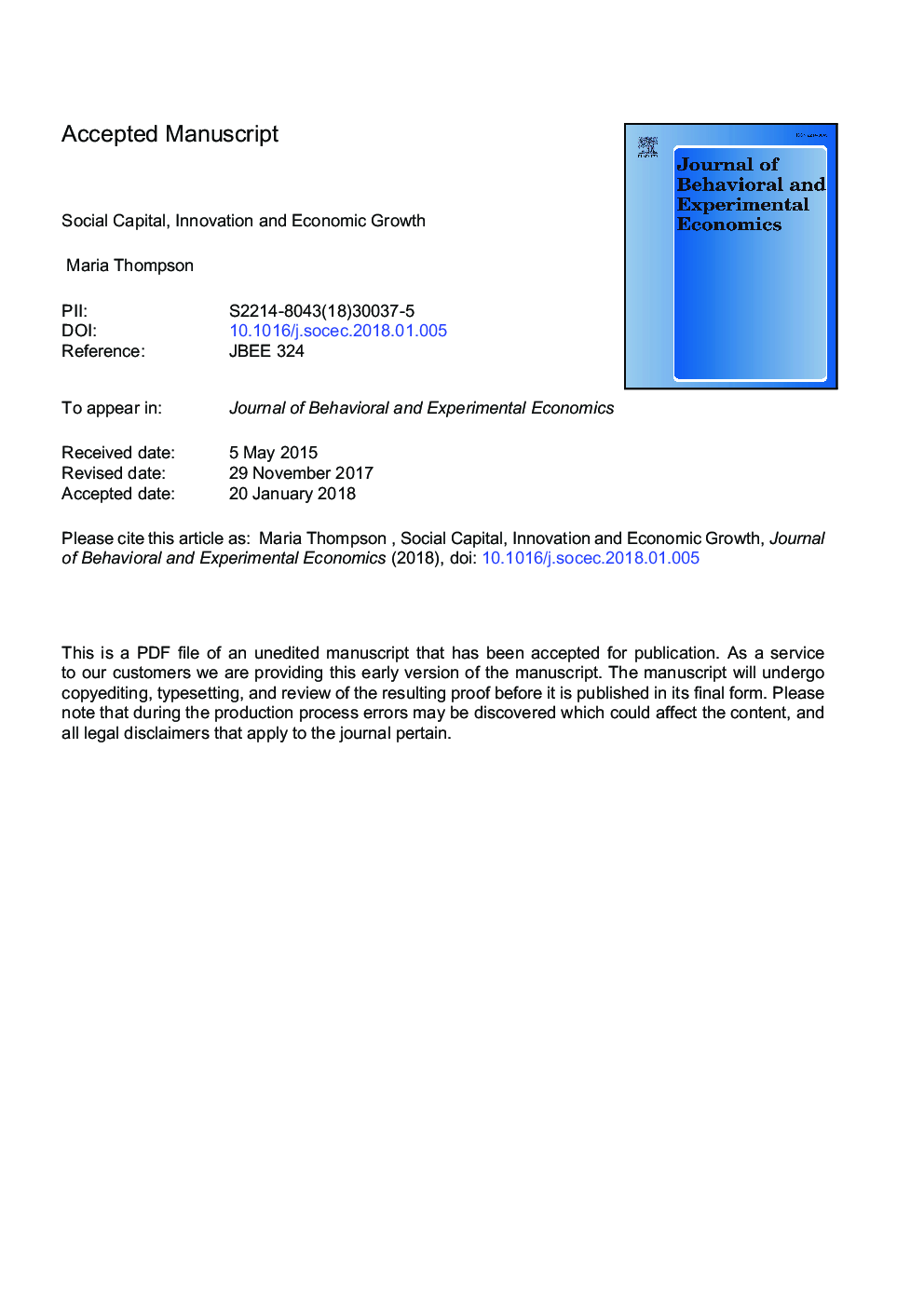| Article ID | Journal | Published Year | Pages | File Type |
|---|---|---|---|---|
| 7241981 | Journal of Behavioral and Experimental Economics | 2018 | 32 Pages |
Abstract
Social capital consists of trust and trust-based networks. It facilitates cooperation and information-sharing between economic agents, being hence fundamental for innovation activities. Innovation is the main engine of growth for an increasing number of economies. We introduce an innovation-based growth model with collective social capital that conveys theoretically the argument that social capital influences innovation and consequently economic growth. Social capital stimulates innovation activities, which leads to higher monopolistic profits, which results in higher social capital, in a self-reinforcing mechanism. As the innovation economy grows, social capital grows endogenously with the growth of monopolistic competitors' profits and production. In this neoclassical economy, collective social capital grows naturally and influences economic growth through the innovations sector. In harmony with empirical evidence, the model predicts that economic growth increases with the ratio of output-workers to innovators.
Related Topics
Social Sciences and Humanities
Economics, Econometrics and Finance
Economics and Econometrics
Authors
Maria Thompson,
